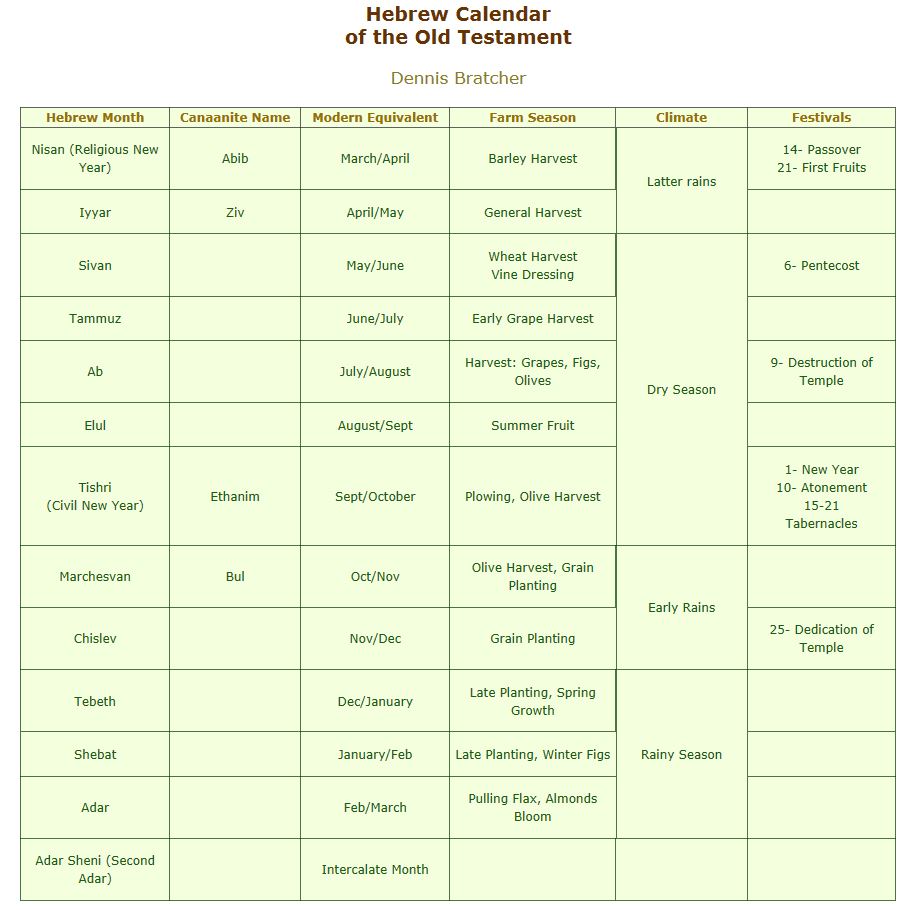Observing the Sabbath Day of Rest
J. Compton
Exodus 20:8 "Remember the Sabbath day by keeping it holy. 9 Six days you shall labor and do all your work, 10 but the seventh day is a sabbath to the Lord your God. On it you shall not do any work, neither you, nor your son or daughter, nor your male or female servant, nor your animals, nor any foreigner residing in your towns. 11 For in six days the Lord made the heavens and the earth, the sea, and all that is in them, but he rested on the seventh day. Therefore the Lord blessed the Sabbath day and made it holy."
The Confusion
Many of us who trust and follow Christ differ when it comes to observing the Sabbath day of rest.
The Christ Consideration
The Hebrews were to keep the law forever (Deuteronomy 29:29; 1 Chronicles 28:7). During Jesus' earthly ministry, He puts some perspective around "forever" - Matthew 24:1-3.
The end of the age was the end of the divinely given Judaic system (also see Matthew 23:37-39; Luke 19:41-44). In John 12:36 Jesus announced the beginning of a new era or covenant. He says, "Believe in the light while you have the light, so that you may become children of light". Jesus was hinting about the promised new covenant (see Jeremiah 31:31-34). After His resurrection and ascension it could be entered into through faith in Him - the Messiah. By calling this covenant new, the first covenant was no longer in effect - Hebrews 8:13, 10:1, 19-22.
So 250 years later, the fourth century A.D. Roman Emperor Constantine changing Christian worship from Sabbath to Sunday should not be alarming (despite his tactical motive). Scripture never required new covenant believers to maintain any element of the Judaic system (that would include keeping the Old Testament Sabbath). In fact, after Jesus' death by crucifixion - centuries before the Roman Emperor Constantine - believers routinely gathered individually or collectively on the first day of the week (rather than the seventh) with the intent to worship Christ - Matthew 28:1-7; Mark 16:2; Luke 24:1; John 20:1, 19; Acts 20:7; 1 Corinthians 16:2.
As much as we may dislike the emperor's change (or Catholicism for going along), we must first understand the broader truth (cited above). Doing so allows divine revelation to influence our response, rather than emotionalism, splintering, politics or extremism. The truth is, that a Roman Emperor's belief (for Saturday or Sunday worship) is a very poor substitute for divine revelation. God has already addressed this matter. When we "KNOW ABOUT THE FAITH IN WHICH WE TRUST" we won't react with extreme.
The Calendar Consideration
In the law given to Moses, God never commanded that a particular day of the week was to be the Sabbath. He said the seventh day. I know, Saturday is the seventh day on our calendar. But the Gregorian calendar that we use today was only introduced around 1582 AD (less than 500 years ago). However, the weekly Sabbaths that God commanded for the Hebrew calendar occurred in a series of seven days. These days would be regularly interrupted by annual festivals (also referred to as annual Sabbaths) that God also commanded (Leviticus 23).
See diagram below (by Dennis Bratcher):
Notice the date of the month of each festival (the rightmost column). In Leviticus chapter 23, God commanded that each festival must occur on that date of the month, regardless of which day of the week it fell each year. During the time period in between each festival the series of weekly Sabbaths would resume (until the next festival). God so ordered the Sabbaths that the recurring series would be continually interrupted by festivals; whose day of the week varied each year. Therefore, in the ancient Hebrew calendar the day of the week upon which the seventh day fell depended on the day of the week that the festival date fell.

The difference in our present day Gregorian calendar is significant. It is comprised of a series of uninterrupted seven day intervals called weeks. Our weeks continue uninterrupted regardless of the change in the month, or the change in the year. Our series of seven days remain unbroken. What this means is, unlike the calendar that God refers to in Leviticus 23, for us Saturday will always be the seventh day in our series.
Christians who believe in keeping Moses' Sabbath today must follow the same calendar that God used, in order to know upon which day of the week the Sabbath falls. Otherwise, they could not keep the Sabbath according to the law given to Moses.
The Conclusion
So who is correct? Though I fluctuate between b and c above, I believe that neither group has the right to judge the other. The right perspective on subjects like this (subjects that are not specific to the bible's essential theme of redeeming humanity from sin) is a matter of an individual's devout promise to Christ.
Romans 10:4 Christ is the culmination of the law so that there may be righteousness for everyone who believes.